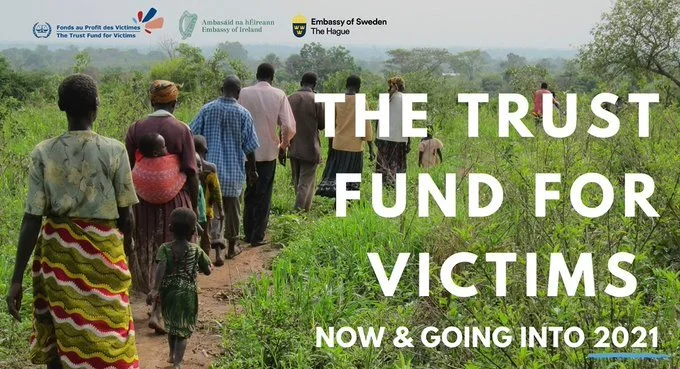19TH SESSION OF THE ASSEMBLY OF STATES PARTIES
14 December 2020
Name of the Side Event: The Trust Fund for Victims: Now & Going into 2021 (co-hosted by Ireland and Sweden)
Report by: Alexandrah Bakker, Junior Research Associate PILPG-NL
Highlights:
Despite challenges arising from the COVID-19 pandemic, the Trust Fund for Victims has expanded its operations in 2020 to include seven countries, and intends to continue expanding in 2021.
The Trust Fund for Victims welcomes the Independent Expert Review and has integrated its recommendations into the TFV’s strategic plan for 2020-21.
The Trust Fund for Victims expressed a commitment to improving gender equality in its operations.
Summary of the Event:
H.E. Kevin Kelly, Ambassador of Ireland to The Netherlands, opened this side event on the second day of the 19th ASP by applauding the opportunity this event provides to focus on the central role victims hold in the work of the ICC. Ambassador Kelly noted that despite the difficulties of the COVID-19 pandemic, 2020 has been a particularly busy year for the Trust Fund for Victims (TFV). The TFV has expanded its operations in Mali, the Central African Republic, and the Democratic Republic of the Congo, and has announced its intention to open an assistance program in Georgia. Ambassador Kelly encouraged the TFV to outline its intention to implement the recommendations of the Independent Expert Review (IER) and to maintain a transparent line of communication.
Mama Koité Doubia, Chair of the TFV Board, observed that victims continue to suffer on multiple fronts during the pandemic, due to a lack of adequate treatment and sustainable support. Nonetheless, Mama Koité affirmed the TFV’s continued dedication to supporting victims. She further noted that the TFV has taken into consideration the recommendations of the IER, and has integrated these recommendations into its strategic plan.
Mr. Pieter de Baan, Executive Director of the TFV, presented the side event as an opportunity for the TFV to paint a picture of its operations, as part of its desire to build an increased communications presence and increased public accountability. Mr. de Baan outlined the activities of the TFV throughout 2020, which included an increase in its number of implementation partners; implementing the reparations awards in the Katanga case; conducting victim identification and verification processes in Lubanga and Al Mahdi; and strengthening its organizational base in The Hague and in the field. The TFV also adopted two plans in 2020: 1) a contingency plan that focuses on impact and performance, and 2) an activity plan that includes the response of the TFV to the IER’s recommendations. In 2021, the TFV intends to expand its staff capacity, invest in fundraising and communication, and develop policies for gender mainstreaming. The TFV hopes to complete the implementation of reparations in Katanga, to begin implementation in Lubanga and Al Mahdi, and to commence assistance programs in three additional countries.
Ms. Franzisca Eckelmans continued by describing the specific role victims can have during and after trial, as legal participants to the trial, and as individual beneficiaries of reparations awards. She emphasized that victims are consulted by the TFV at all stages, including in the design of the implementation plan and during the actual implementation.
Ms. Aude Le Goff, program manager for the TFV in Mali, shared her experience from TFV operations in Mali. Ms. Le Goff outlined the challenges the TFV faces in Mali, including access and security, ensuring that women benefit equally, and time constraints. She emphasized the importance of complementarity between TFV operations and domestic processes, noting that there is a strong ongoing transitional justice process in Mali, and that the TFV is operating only until Mali is ready to resume operations by itself.
Mr. Scott Bartell, program manager for the TFV in Uganda, observed that the TFV’s assistance programs, which focus on vindicating victims’ rights and rendering valuable support to victims of crimes within the ICC’s jurisdiction, are to be distinguished from humanitarian aid. In response to a question in this regard, Mr. Bartell and Ms. Le Goff noted that the manner in which they work with implementing partners in situation countries involves a relationship of accompaniment and cooperation. Mr. Bartell went on to describe the changes made by the TFV and its implementation partners in an attempt to ensure continuity during the COVID-19 pandemic.
To conclude the event, Ms. Kristine Erlandsson, representative of Sweden, noted that comprehensive justice does not only involve holding perpetrators to account but also, importantly, requires a victim-centered approach. She noted that the TFV has acknowledged the need for improvement in developing a gender-sensitive approach, which should involve the participation of men and boys in work for gender equality.

